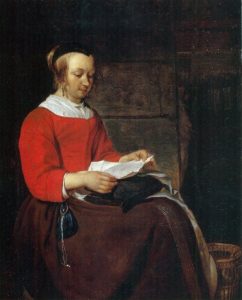 Writing historical fiction is not so very different from contemporary fiction; both need a sizzling plot and strong characters. But there are some aspects to historical fiction which need more thought.
Writing historical fiction is not so very different from contemporary fiction; both need a sizzling plot and strong characters. But there are some aspects to historical fiction which need more thought.
- A sense of place. If possible, I visit the setting of my historical novel and soak up the atmosphere. I mentally block out everything modern and try to see the place as it was. What is the lie of the land? Are there hills or deep valleys? Sniff the air and listen. Can you smell the sea or the river? Hear seagulls or a skylark? Touch the stone walls or the great oak gates and memorise their texture. If there’s an old cobbled street, imagine walking along it in long skirts in the rain. Write it all down in your notebook. Later, when you come to write about that particular setting, you’ll be able to take out your notes and instantly transport yourself back to that place. I guarantee this will add authenticity and spark your writing into life.
- Research. Do it! Don’t assume you know something because there will always be an expert out there to shoot you down if you get it wrong. Always go back to original sources if you can. I read most of Pepys diaries whilst writing The Apothecary’s Daughter and this gave me a tremendous insight into how people behaved, their expectations and what they thought about current events.
- Would they have done that? Be careful about your characters’ thoughts and expectations. One difficult aspect of this when writing The Apothecary’s Daughter was the attitude to slavery in Restoration England. Slaves were thought of as little more than animals at that time. How do you make your contemporary readers like your heroine if that is her view? I let Susannah’s mind-set change over a period of months so that she could be true to her time but still not cause offence to today’s reader.
- Dialogue Take great care with dialogue. You can read contemporary diaries and letters to guide you as to how people really spoke at the time but it would sound unnatural to the modern day reader to scatter the conversation with ‘methinks’ and ‘gadzooks’. I use a more formal form of speech than I would when writing contemporary fiction, whilst being extremely careful not to use any jarringly modern words.
I’d love to hear from you if you have any comments on writing historical fiction, whether you are an author or a reader. Let me know your pet hates and what makes a story really come alive for you. What attributes do you look for in vibrant characters that you really care about? What constitutes a satisfying story? I’m looking forward to hearing your views.


I really liked this and will be following. I am working on a thesis about writing the historical novel and part of it is my own novel set just after Hastings. I agree with all your advice. It is interesting since the slavery issue loomed in my own heroine’s story.
Hello Carol
I wrestled with this one for some time. It fascinated me to discover how the populace’s thinking changed about slavery during the seventeenth century. White indentured servants worked in the plantations in the colonies at first, then indentured black servants. Once it was discovered that they could stand the heat in the fields far better than white men, who inconveniently kept dying, slavery became more common and in time an essential part of the business. Rather like the holocaust, people turned a blind eye to the suffering since they enjoyed the profits and also the ready availability of sugar and tobacco.
Very good luck with your novel and I hope you find as much enjoyment in the writing of it as I did with The Apothecary’s Daughter.